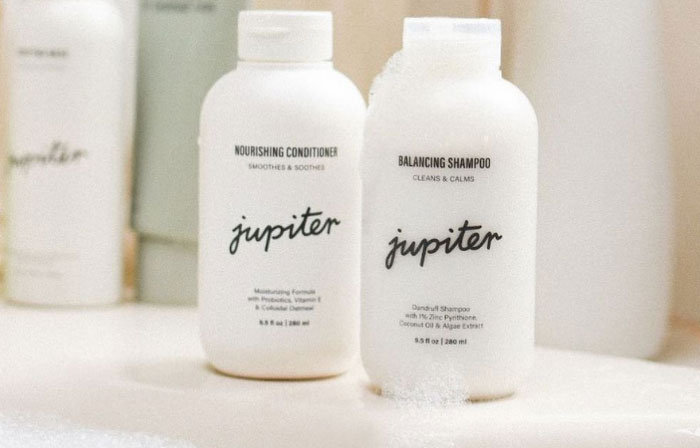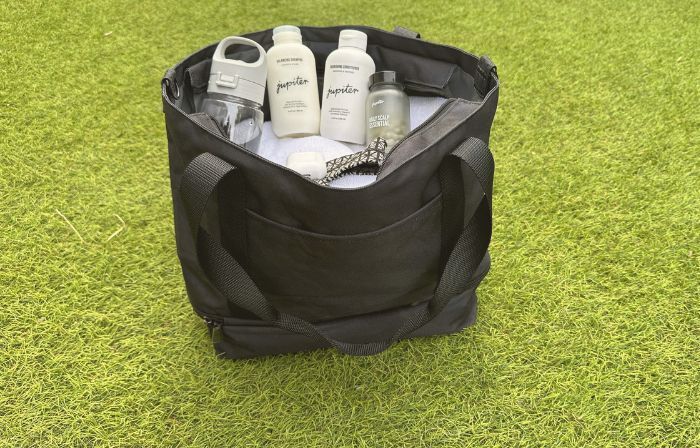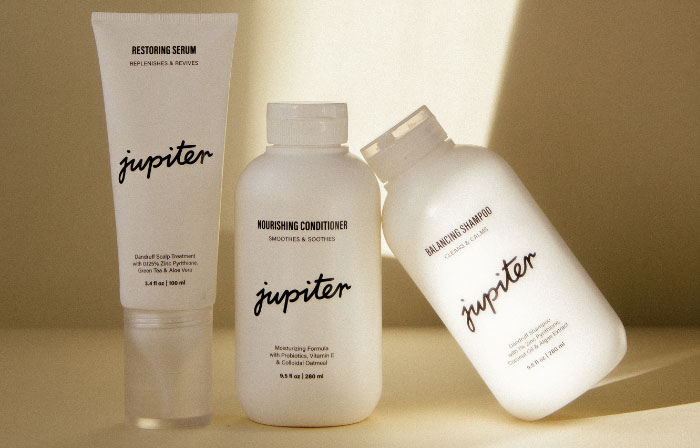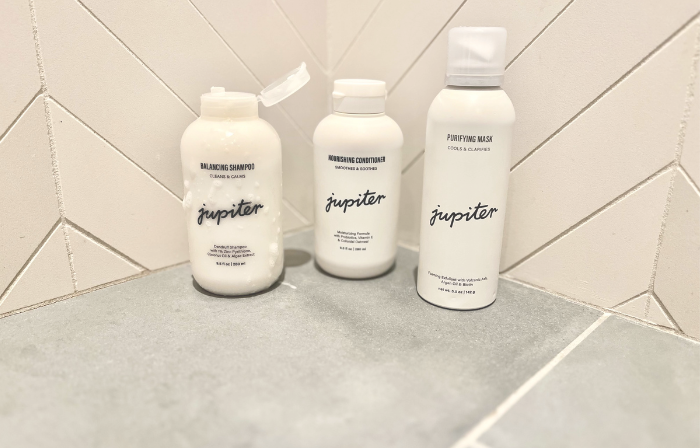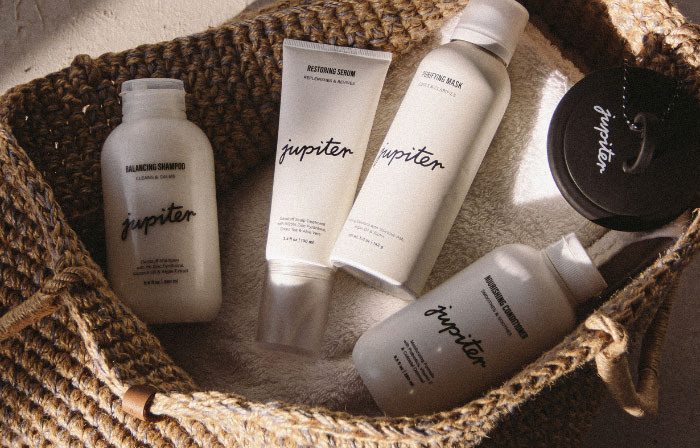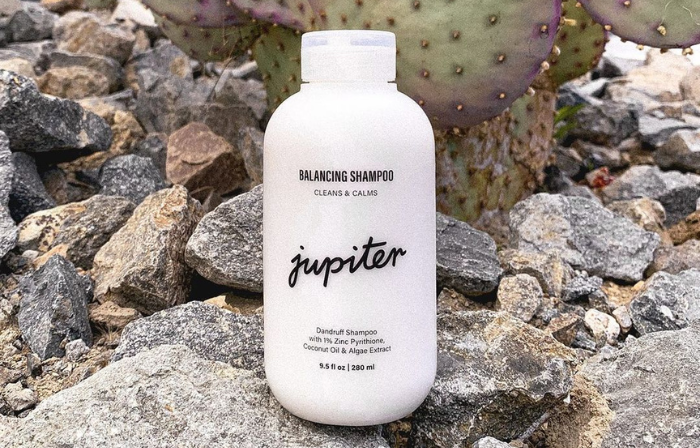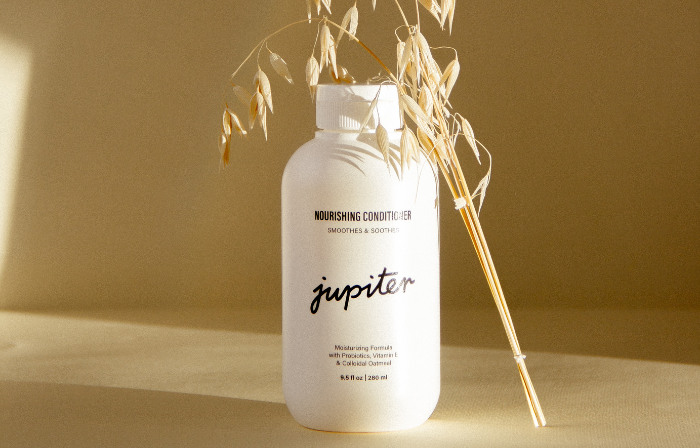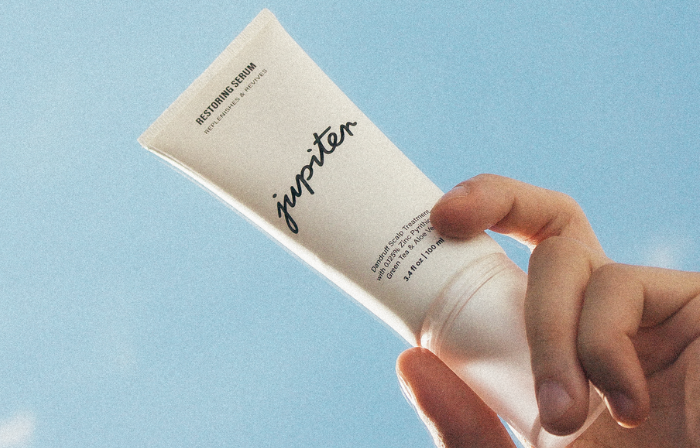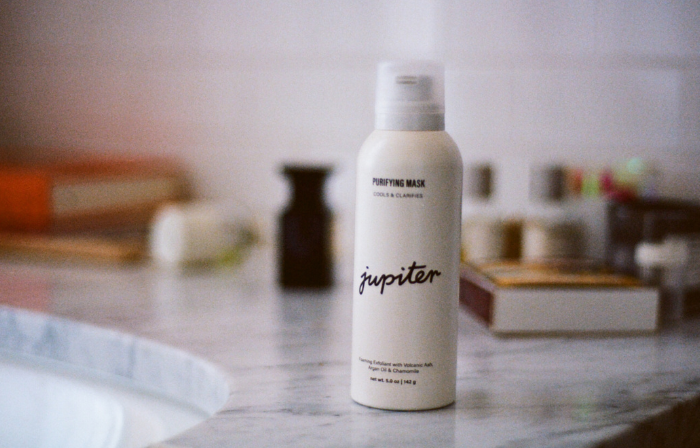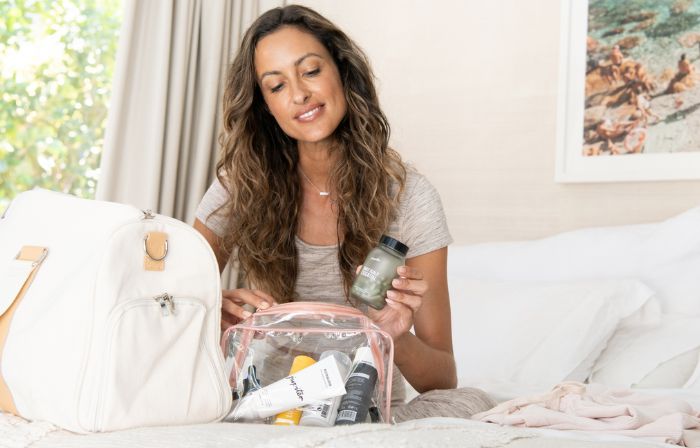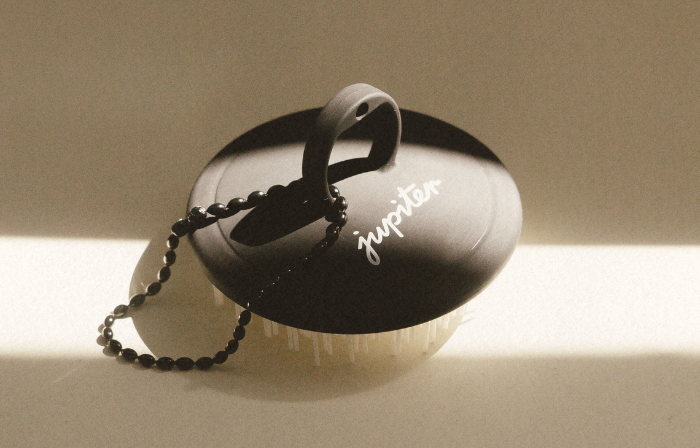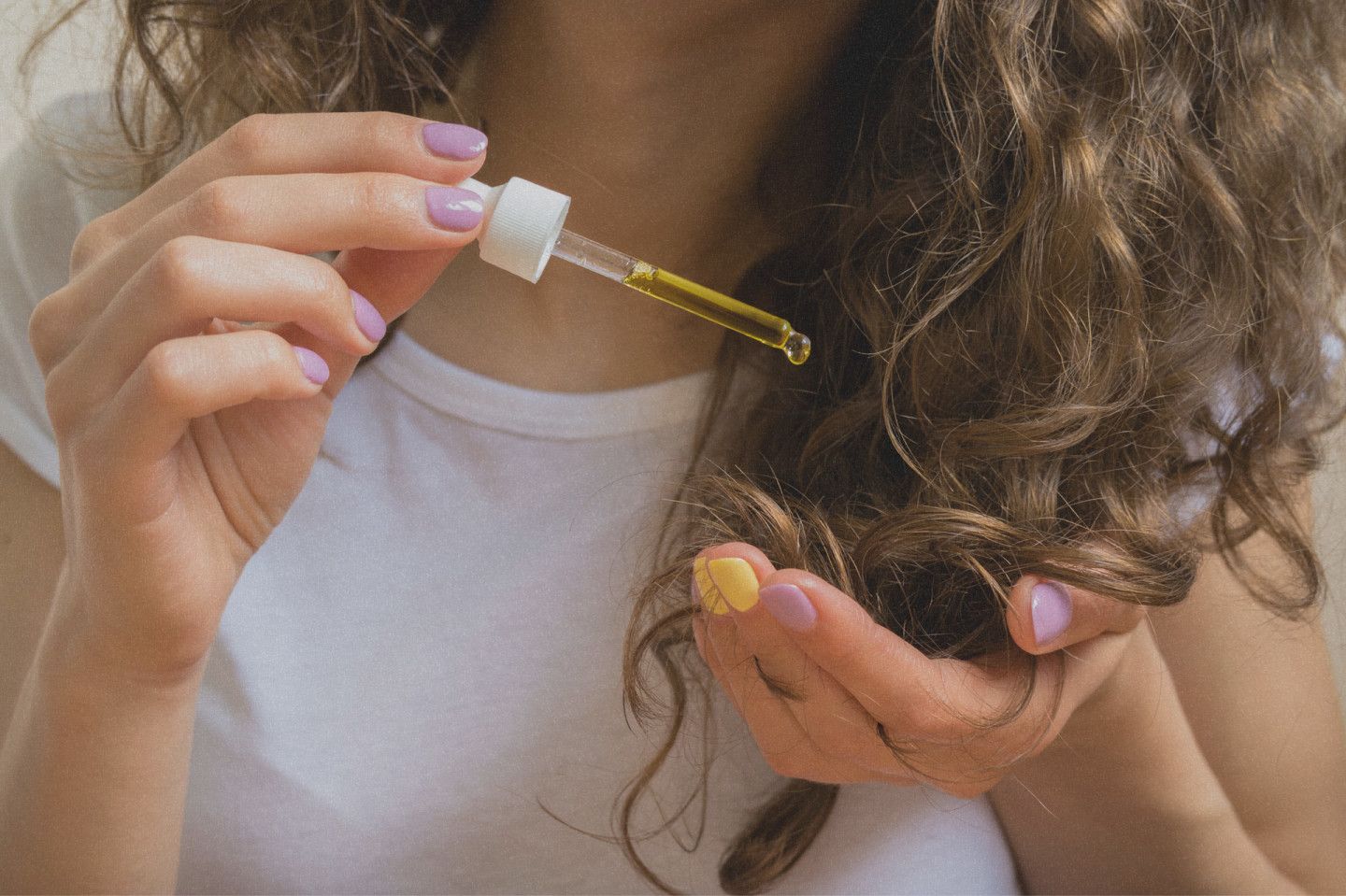🫶🏻 OUR 5% PLEDGE TO HER
#STRONGHERTHANYESTERDAY - WE DONATE 5% TO WOMEN-DRIVEN CHARITIES. LEARN MORE.
Hair oils are the latest hair care trend to pop up. Before jumping on board, it’s important to understand how oils work with our hair and scalp - not all oils are equal.
The type of oil you choose for your hair may make it either shiny or moisturized. If your hair care products aren’t quite cutting it, maybe it's time to look for hair oil.
Oils perform differently on the hair because some are moisturizers and some are sealants. Confused? Don’t sweat it, continue reading to learn more about the different types and how they’re used.
What Are The Two Main Types of Oil?
There are two types of hair oil: moisturizing and sealing. We'll explore each in this article.
Moisturizing
Moisturizing oils gently penetrate the hair shaft to. add moisture, and can strengthen the hair. They infuse softness to the hair, but can’t seal the moisture inside the hair cuticle. Moisturizing oils only moisturize the hair shaft.
Sealing Oil
Sealing oils soften the hair, remove toxins and impurities, and seal in moisture after applying moisturizer or water. Sealants do not bring moisture to the hair, rather they lock in moisture already there by coating the hair shaft.
What Are The Types of Moisturizing Oils?
Moisturizing oils work best with water-based leave-in conditioners or water alone, and they don’t leave a film on your hair because the oil penetrates the shaft. Moisturizing oils also help nourish the scalp, which may promote hair growth. Below are a few commonly used moisturizing oils, you may recognize some of these oils as ingredients in your favorite hair care products.
Coconut Oil
Rich in omega-3 fatty acids and vitamin E, coconut oil can add shine to the hair and is one of the most popular types of oil found in hair care products.
The molecules in coconut oil are small, making it easily penetrable to the hair but in limited quantities. It has anti-bacterial and anti-fungal properties and works best with a water-based leave-in conditioner.
Palm Kernel Oil
Palm kernel oil comes from palm fruit seeds, contains antioxidants, and has a nice, light texture. This oil works great as deep conditioner when included in professionally formulated conditioners.
Babassu Oil
This moisturizing oil comes from the Brazilian palm tree and is often compared to coconut oil. However, it is lighter and less greasy, heavy, and oily than coconut oil.
Avocado Oil
Avocado oil may help address hair that is dry and damaged due to heated styling tools and environmental factors such as pollution and extreme temperatures. It strengthens hair thanks to its vitamin E content, prevents breakage, and smoothes the cuticle.
Olive Oil
Olive oil contains vitamin E and fatty acids, and it is an emollient similar to oleic acid and squalane that can soften hair and has intense moisturizing capabilities. Olive oil may add strength and shine while coating the cuticle.
Almond Oil
Almond oil is rich in vitamin E, magnesium, and omega-9 fatty acids can strengthen the hair and help prevent breakage and potentially stimulate hair growth. It is thought to protect and moisturize the hair with its emollient properties. Those with a dry, irritated scalp may want to look for hair care products that include almond oil on the ingredient list.
What Are The Types of Sealing Oils?
Unlike moisturizing oils, sealing oils coat the hair and cannot penetrate the shaft, rather they hold moisture inside the hair follicle. Apply your moisturizer or leave-in conditioner first, then seal it in with a professionally formulated sealing oil product. Below are some examples of sealing oils.
Jamaican Black Castor Oil
Jamaican castor oil (JBCO) is a thick, viscous oil that coats the hair while helping to draw out toxins that can prevent hair growth. Its thick consistency makes it perfect for coating all hair textures.
Grapeseed Oil
Grapeseed oil works well for people with thin hair because it is light, yet it still seals in moisture. If your hair tends to get weighed down, look for a hair oil made from grapeseed oil for a lighter option.
Jojoba Oil
Jojoba oil mimics your scalp's natural hair sebum. It’s a light sealant oil that is may be helpful for those with dry, flaky scalp because it is known to restore your hair and scalp’s pH.
Rice Oil
Rice oil is an inexpensive oil pressed from rice bran, and it works well for those with thin and fine hair. You may have seen rice oil touted on TikTok how-to videos lately - remember it’s best to always seek out professionally formulated hair care products and hair oils that include these natural oils.
What Are The Two Types of Natural Oils?
There are two types of natural oils that can be beneficial to our hair and body: essential oils and carrier oils.
Essential Oils
These oils are beneficial in aromatherapy and traditional medicine. Peppermint and rosemary are two examples that you’re probably familiar with as widely used essential oils with healing properties.
Carrier Oils (Base Oils)
These oils are high in essential fatty acids and used in skincare, haircare, cleansing, and cooking products because they aid in moisturizing, cleaning, healing, and sealing properties. Carrier oils dilute essential oils to lessen their concentration.
...it’s important to use oils as part of a professionally formulated, science-back hair care product.
What Are The Types of Carrier Oils?
Carrier oils dilute essential oils and deliver them to the hair shaft, giving them the ability to penetrate more deeply.
Argan Oil
Argan oil is rich in vitamin E and is often called Moroccan gold. It is rich in antioxidants that can protect the hair from environmental factors like the sun.
Castor Oil
Castor oil may help control dandruff and scalp discomfort thanks to its anti-inflammatory and antimicrobial properties. It’s full of helpful antioxidants, too.
Macadamia Oil
Macadamia oil may contribute to shiny, smooth hair due to the variety of vitamins and fatty acids found in the oil. It is versatile and can be used on most hair types (though beware if you have a nut allergy).
How Do You Use Carrier Oils In Your Hair?
While the DIY method may sound like a fun experiment, it’s important to use oils as part of a professionally formulated, science-back hair oil product. TInkering with your scalp can do more harm than good (think clogged pores and hair follicles, improper dosing for your skin type, and unwanted skin reactions). With that in mind, look for hair oils that include nourishing carrier oils as part of their formulas.
What Are Essential Oils?
Essential oils come from plants and dilute when mixed with carrier oils. Many essential oils are beneficial for dry hair. These oils include:
Tea Tree Oil
Thyme
Rosemary
Sandalwood
Peppermint
Lavender
Clary Sage
Ginger
Ylang-Ylang
Rose
Eucalyptus
Geranium
How Do You Use Essential Oils in Hair?
Similarly to carrier oils, we always recommend using essential oils as part of a professionally formulated hair care product. When formulated properly among other healthy, natural ingredients you can ensure your hair and scalp receive the health benefits without worrying about clogged hair follicles or a skin reaction.
Do Essential Oils Have Side Effects?
Some people are sensitive to essential oils, so perform a patch test if you are unsure of allergies and note that using essential oils without a carrier oil may cause contact dermatitis.
Some essential oils are more likely to cause reactions. These oils include lemongrass, sandalwood, jasmine, and clove.
Do Oils Penetrate The Hair Differently?
Yes, oils penetrate the hair differently depending on their chemical and nutrient makeup. Additionally, elements like water and heat allow moisturizing oils to penetrate more easily.
Which Oil Is Right for Your Curls?
To determine which oil is suitable for your curls, it depends on the look you want to achieve. If your hair is frizzy and dry, choose moisturizing oils to provide hydration and defined curls, reducing frizz. If you need more shine to your hair, apply sealing oils. Need both moisture and shine? Look for an oil that is blended that provides the best of both worlds.
Bottom Line
Oils are a fantastic hair care ingredient for curly, dry, and damaged hair, and oil is also beneficial for people with a dry and flaky scalp. Using the right products and ingredients on your hair and scalp can make all the difference in how your hair looks and feels.
If your hair is dry or damaged and needs a little TLC, apply a product formulated with moisturizing oil to penetrate your parched strands. Try a sealing oil if you just want a sleek shine or more defined curls. Do you need both? Blended oils provide both moisturizing and sealing abilities in one.
It’s important to remember that healthy, gorgeous hair starts with a healthy scalp and using the right products, professionally formulated with sealing and moisturizing oils is the best way to reap the benefits of hair oils and maintain your gorgeous locks.
Our “Gotta Get” set was designed with the power of oils in mind, alongside the star active ingredient Zinc Pyrithione, found in our Balancing Shampoo, we’ve also packed the set with hair-healthy oils like coconut oil, argon oil, and tangerine peel oil (to name a few!).
Our formulas are safe for all hair types and color-treated and chemically-treated hair. Still not sure? Take the scalp care quiz to snag your personalized plan.
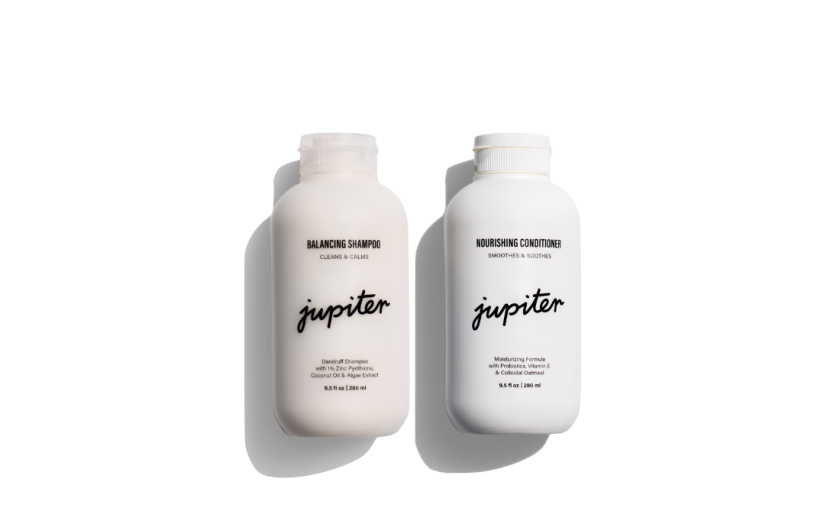
Our best-selling duo! The medicated Shampoo tends to your dandruff while the Conditioner’s combo of colloidal oatmeal and coconut oil moisturizes your scalp and hair. Safe for everyday use. Check out the Advanced Oil Control Trio if you flake on the regular and could use a bit more control.
Travelling? Check out our Weekender Capsules for on-the-go scalp care.
